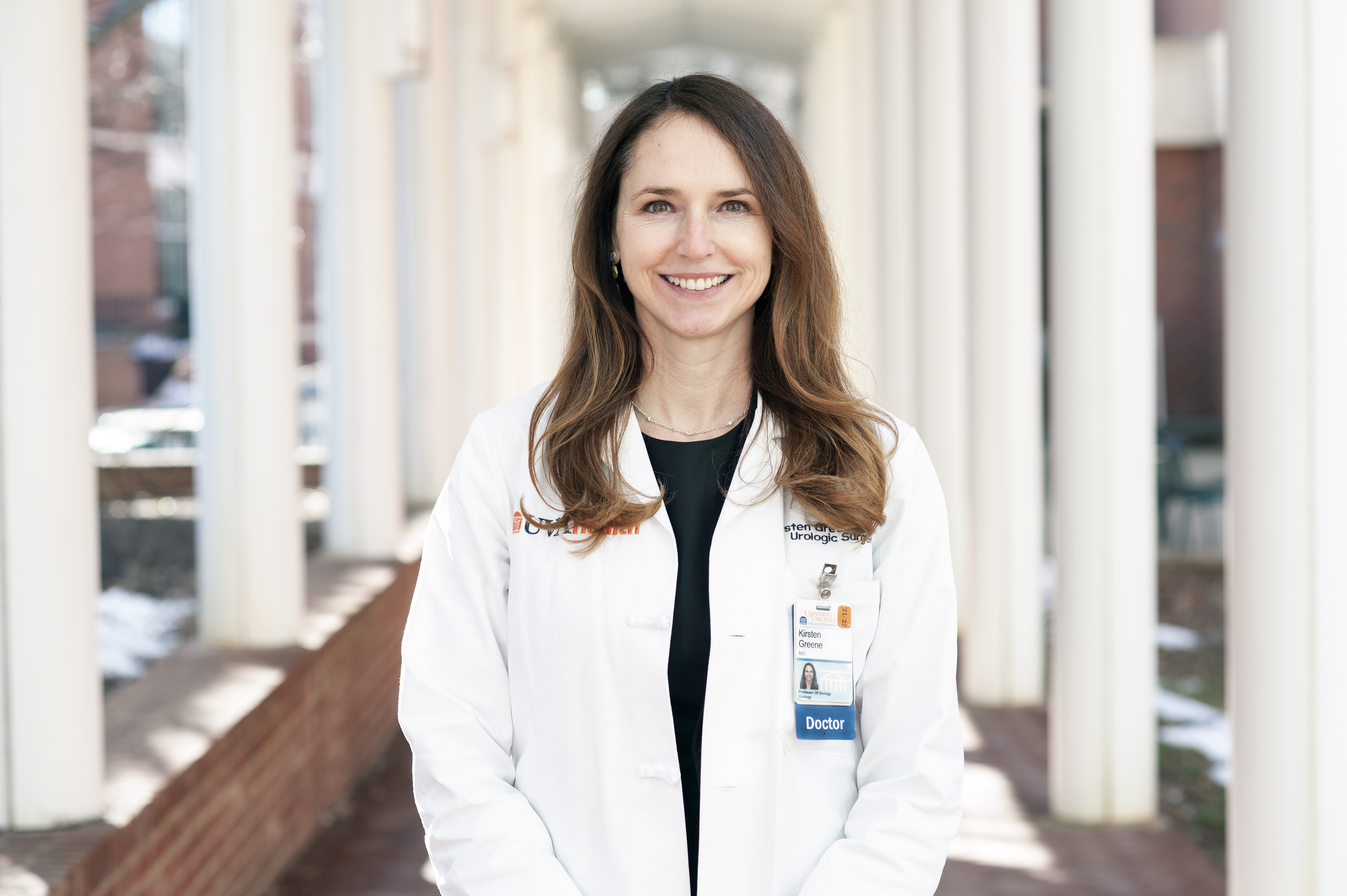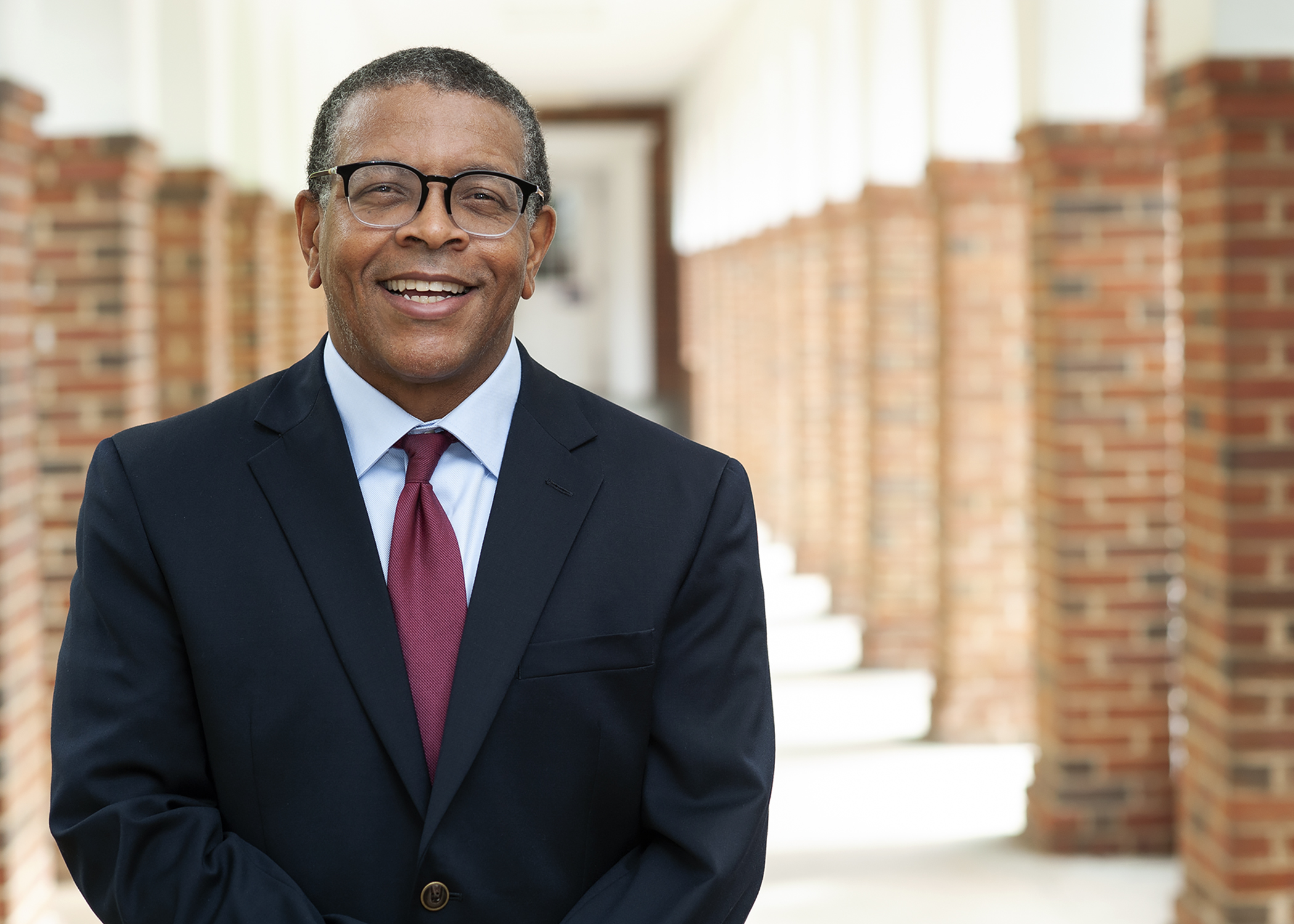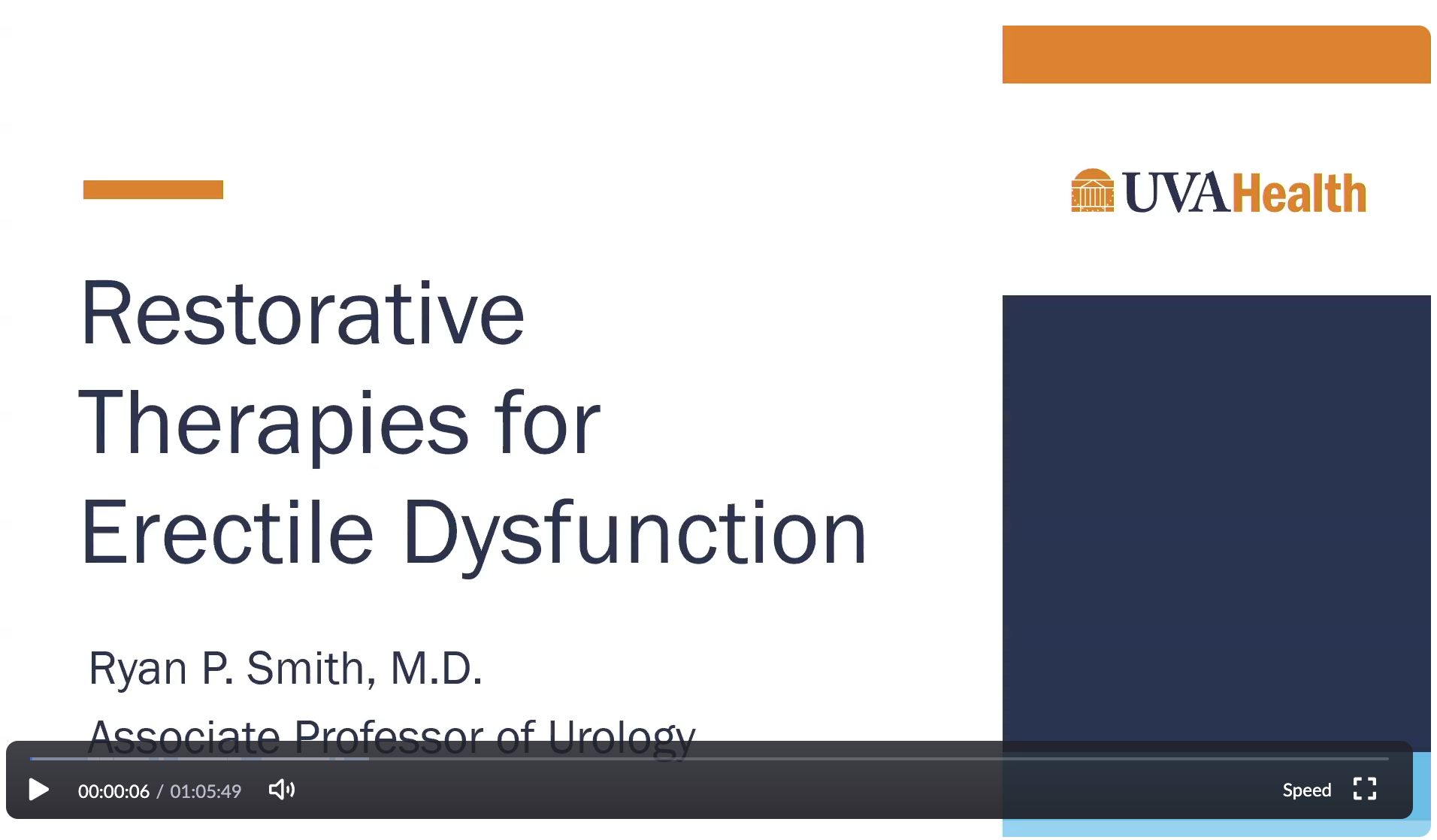From Diagnosis to Recovery and Beyond
Navigating a cancer diagnosis within the fragmented U.S. healthcare system can be overwhelming, to say nothing of the physical and emotional toll of cancer treatment and recovery. The primary mission of UVA Health and UVA Comprehensive Cancer Center is to simplify this complexity for the community—to provide truly integrated, patient-centered care from screening and diagnosis to treatment, recovery, and survivorship. UVA builds bridges across disciplines while attacking cancer on four strategic fronts: clinical care, research, education, and community outreach.
UVA’s emergence as a world-class destination for prostate cancer patients, clinicians, and researchers is a testament to this four-pronged approach. It’s also a powerful example of how gratitude and generosity fuel the center’s work. Private support has been vital to UVA’s strategic battle against prostate cancer—whether in the form of a significant philanthropic gift or the incremental proceeds of the Bill Steers 4-Miler—a long-standing Charlottesville footrace started by and named in honor of the beloved former chair of the Department of Urology who passed away from cancer in 2015.
Increasing Access to Exceptional Care
For clinical care, “we offer every imaginable approach,” says Kirsten Greene, MD, the Paul Mellon Professor and Chair of the Department of Urology. Greene is a national leader in advanced robotic surgery for prostate cancer, including the most minimally invasive techniques offering the quickest recovery.
Depending on the situation, prostate cancer patients may need (1) medical intervention (chemotherapy, immunotherapy, or the like), (2) surgery, (3) radiation, or a combination of the three. UVA has a growing, collaborative team of premier clinicians in all areas, including Robert Dreicer, MD, a pioneer in urologic medical oncology “who brings every important clinical trial to UVA,” says Greene. On the radiation oncology side, Timothy Showalter, MD, and Christopher Luminais, MD, are leading experts in the most precise form of high-dose radiation therapy—only a few hospitals offer it.

Since Greene became chair in 2019, UVA has doubled its number of urologic surgeons and oncologists. Greene has also hired more faculty in disciplines that support prostate cancer patients before and after treatment, including specialists in continence recovery and sexual health rehabilitation and reconstruction. In addition to more providers, UVA’s enhanced telemedicine program and expanding network of care facilities throughout the state are improving patient access to its expertise. Patients do not need a referral, and UVA Urology welcomes people from all corners of Virginia and surrounding states.
Personalized Medicine and Care
But for Greene and her team, access is not just about getting an appointment—it’s about offering the most advanced care combined with a personalized approach that best fits a patient’s individual goals and needs.
Furthering that cause is a newly hired nurse navigator—a healthcare professional who specializes in guiding patients through the complexities of cancer care. UVA Cancer Service Line administrator Blake Herring, MSN, RN, says that nurse navigators focus on the front end of patient care: “Recognizing that early intervention can be a key factor in successful cancer treatment, the navigator works diligently to expedite the referral and appointment scheduling process. With a deep understanding of the healthcare system and oncology care, they identify the most appropriate specialists and services for the patient's condition, help to remove logistical and financial barriers that could delay care, and provide emotional support and educational resources to alleviate anxiety and empower patients to actively participate in their treatment journey.” Herring says UVA Health intends to hire five additional nurse navigators for the Cancer Service Line.
“Survivorship is an essential part of any type of cancer, says Dr. Greene. “We're not just focusing on how best to diagnose and treat you, but to get you back to where you want to be.”
That approach rings true for Jon Trick, a Charlottesville resident and avid cyclist who received prostate cancer treatment from Greene in April. He says Greene recognized how important it was for him to get back to his active lifestyle quickly.

“She was attentive to my concerns and interests, and that’s not the norm in my experience,” says Trick, who spent a career in the healthcare industry before retiring. He calls himself a “huge fan” of Dr. Greene, and says, “She is laser-focused on maximizing each patient’s clinical outcome while recognizing that achieving it implies balancing individual lifestyle and quality-of-life priorities.” He also commends his nurses, especially Eva Rellins, FNP, for shepherding him through the process. At his first post-surgery appointment, Trick says that Rellins “took a full hour to discuss a litany of subjects with me, including how I was feeling psychologically and emotionally.”
Trick is back to riding 150-180 miles per week in preparation for the 2023 Alpine Loop Gran Fondo—an annual cycling event in Harrisonburg, Virginia, that raises money for prostate cancer awareness through the Cancer Journeys Foundation.
Developing Next-Generation Treatments and Leaders
While UVA clinicians are working at the pinnacle of patient care, they and other scientists in relevant disciplines are researching ways to continually advance that care. For example, scientists in the Department of Microbiology, Immunology, and Cancer Biology, such as Dan Gioeli, PhD, are identifying prostate cancer biomarkers to better understand, detect, prevent, and defeat it. In clinical trials, medical and radiation oncologists continually test new treatments. At the same time, urology colleagues are investigating how to prevent and more effectively address common short- and long-term side effects of prostate cancer treatment, including incontinence and sexual dysfunction. For example, UVA urologist Ryan Smith, MD, recently finished a clinical trial using low-intensity shockwave therapy to promote blood vessel growth and tissue repair in men with post-treatment erectile dysfunction. This technology is now available for patients. Learn more from the Grand Rounds presentation by Dr. Smith below.
“We’re all studying these questions to improve patient outcomes,” says Greene.
They’re also helping to train the next generation of care providers and scientists—the rising stars who will discover and implement future prostate cancer treatments. To grow the education program, UVA has added one additional urology residency spot, bringing the total to three, and a new urology oncology fellowship.
“What’s unique about UVA is that because we have internally-trained experts and recruit talent from elsewhere, our residents learn every possible technique,” says Greene. “They learn every way to solve a problem and help a patient, not just one.”
Junior faculty are also benefiting from investments in research. For example, with a recent philanthropic gift, Charlottesville residents Drucie and Jon Cole helped launch a new interdisciplinary prostate cancer research initiative that includes mentoring up-and-coming scientists.
Raising Awareness and Increasing Hope
Despite the Cancer Center’s leadership and extensive advances in understanding and treating prostate cancer, too many men, especially those from historically underserved groups, are dying from it or having worse treatment outcomes than others. Contributing factors are complex, but UVA meets many of these barriers head-on with robust community outreach and support programs.
For example, each September, the Urology and Pathology departments partner to offer free prostate cancer screenings in Charlottesville. In addition, urologic oncologist Tracy Downs, MD, UVA Health’s first Chief Diversity & Community Engagement Officer, leads many outreach and education events. Downs has said that discovering the disparate prostate cancer outcomes for African Americans was pivotal to his pursuit of urologic oncology. Last month he was featured in a community event called Stay in the Game—Cancer Conversations for Men to discuss prostate cancer and its impact on Black men in Charlottesville.
In June, Downs and Greene led a free webinar, “Prostate Cancer From Diagnosis to Recovery,” hosted by UVA Lifetime Learning, to explore the controversies, challenges, and opportunities for patients undergoing prostate cancer screening and treatment. The live event was attended by 982 people representing 40 states and 17 countries.

Empowered by Support at All Levels
UVA Health’s four-pronged assault on prostate cancer would not be possible without the support of visionary private donors like the Coles and others who have contributed to UVA’s emergence as a prostate cancer powerhouse. For instance, gifts support UVA Health’s efforts to attract and retain the brightest minds to bear on the disease.
“It takes money to recruit the best surgeons and scientists and help fund them in their early careers as they apply for large federal research grants,” says Greene.
One of the most transformational gifts to UVA Health’s prostate cancer programs came from the estate of Paul Mellon in 2000.
“The Mellon family donated quite a significant amount of money for cancer research that's shared between the Departments of Urology and Medical Oncology. It’s been a wonderful way to get young investigators started and help recruit top talent to UVA,” says Greene.
It doesn’t have to be a six- or seven-figure gift to meaningfully change patients’ lives, however. Greene gives the example of an ultrasound probe for performing a specific type of biopsy, which takes four hours to sterilize between patients. With funding for one additional probe, the team could double the number of biopsies it could perform daily.
“That saves lives by diagnosing cancer earlier, better, and more safely,” says Greene.
The Bill Steers 4-Miler for Men’s Health, which has been raising money for prostate cancer research at UVA since 2004, is another example of small gifts with big impact. This year’s event on November 5 is open to all participants, and Dr. Greene says the Urology Department is excited for a large turnout.
Greene has no shortage of excitement and ideas for transforming prostate cancer care at UVA.
“There are so many innovations and novel technologies that would be wonderful to bring to our patients,” says Greene, “And it would be exciting for young researchers who want to come here to refine and enhance these technologies, like prostate-specific membrane antigen (PSMA) PET imaging and theranostics, to treat prostate cancer without surgery, chemotherapy, or androgen deprivation. But first I have to get them here. And then I have to keep them here. That’s where funding is vital.”
To learn more about UVA Comprehensive Cancer Center’s prostate cancer programs, please contact Andrew Westhouse, Senior Associate Director of Development, Cancer Programs, at andrewwesthouse@virginia.edu or call us at 434.924.8432 or 800.297.0102.


